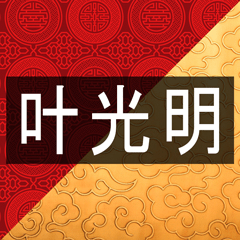
China Closes Down International Adoptions
Mao Ning, a spokesperson for the Chinese foreign ministry, said on September 5th that Beijing was no longer allowing inter-country adoptions of children from China. The only exception will be for families who are adopting the children or stepchildren of blood relatives in China.
An estimated 160,000 Chinese children were adopted by foreign parents over the three-and-a-half decades that international adoptions were allowed. US families adopted 82,674 children from China.
The issues behind this decision are complex. One factor is China's falling birth rate. The one-child policy that was mandatory for many years has now been relaxed. But many Chinese couples are choosing not to have children. The number of newborn babies in China fell to 9.02 million in 2023, as the overall population declined for the second consecutive year.
At the same time China’s improved economy and less of a social preference for male children are given as reasons (adoptions frequently involved unwanted female children).
Another issue is what “will happen to the children with disabilities and special needs, who in recent years formed the largest proportion of international adoptions. Between 2014 and 2018, 95% of the more than 12,000 adoptions by international couples were of a child with special needs. Yanzhong Huang, a senior fellow at the Council on Foreign Relations, says “there is an absence of interest in China in adopting those kids”. However Wang Jinhua, previously director of the social affairs department, suggested that is changing: “More and more domestic families are beginning to adopt children with mild disabilities or orphaned children who have recovered from illness”.
There is also the huge issue of healthy orphans in state institutions - “more than 50,000 kids now live in state orphanages … The ban on international adoption, will condemn them to stay in those institutions until they are 18 years old, and then after that, we don’t know.”
Then there are overseas families who have been in the process of adopting specific children for several years, a process which was interrupted by the COVID epidemic. In letters sent to some adoption agencies the US state department said it had been told by Chinese authorities that all other pending adoptions were cancelled, except those with already issued travel authorisations. For couples mid-way through the adoption process, news of an end to highly anticipated adoptions has been crushing.
Cindy Zhu Huijgen, a Dutch journalist based in China who was herself adopted from China, offered a different perspective: “For many like me — plucked from our home cultures and raised in countries where we didn’t quite fit in — the search for who we are and where we belong has been lifelong and full of discovery, as well as confusion, regret and loss… Not enough attention is given to the darker side of these placements and their impact on adoptees. China’s strict one-child family planning policy, introduced in 1979, forced many Chinese parents to give up their babies. These were usually girls, because of a traditional preference for male heirs. A profit-motivated overseas adoption industry cropped up in response, in which human lives were sometimes bought and sold.”
Pray for families and children where the adoption process was advanced and relationships had already been established.
Pray for those like Cindy Huijgen who are confused about their identity because of their adoption.
Pray for the 50,000 kids who now live in the state orphanages, especially those who are handicapped.
Sources: The Guardian Newspaper; The New York Times.

